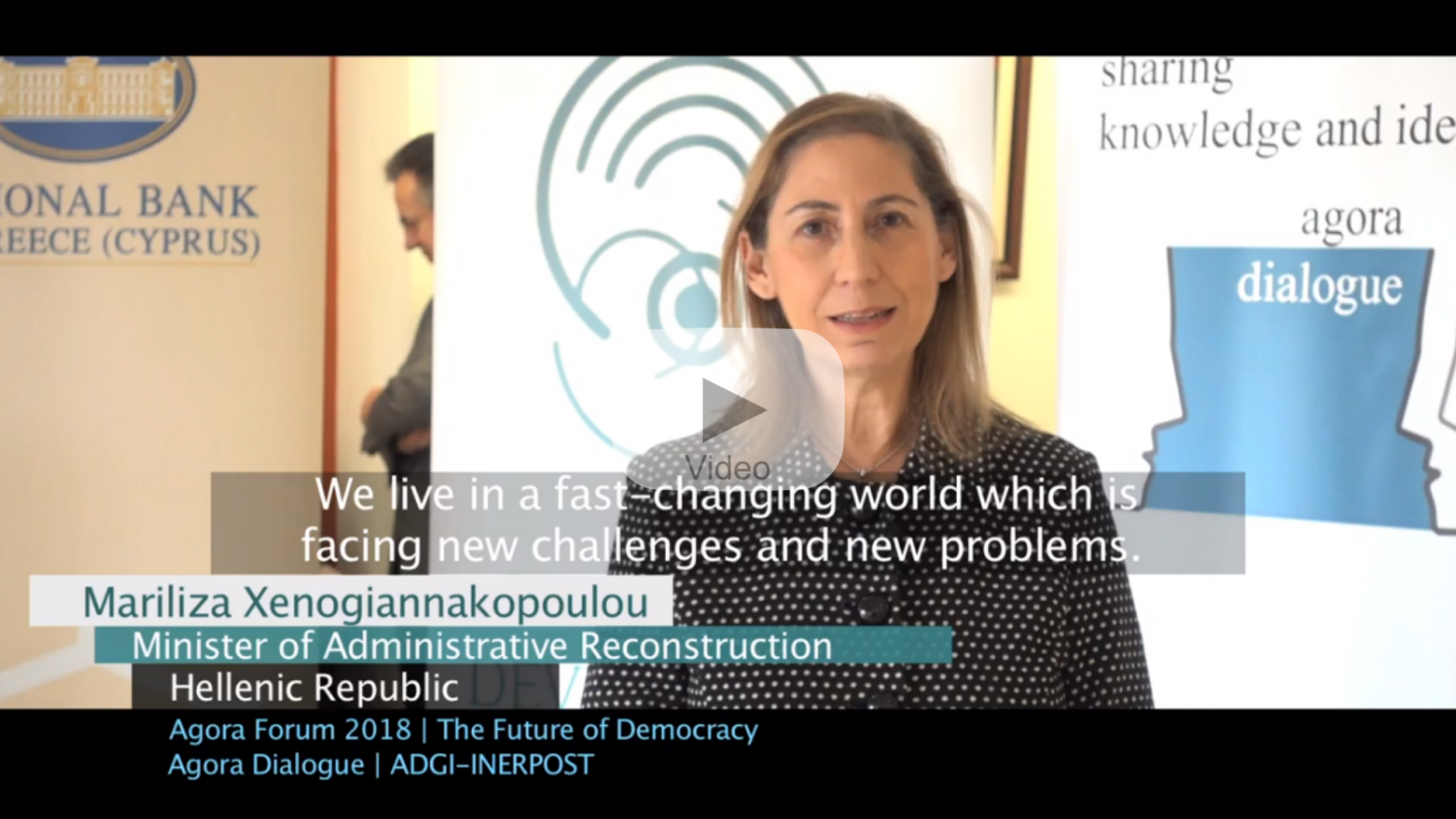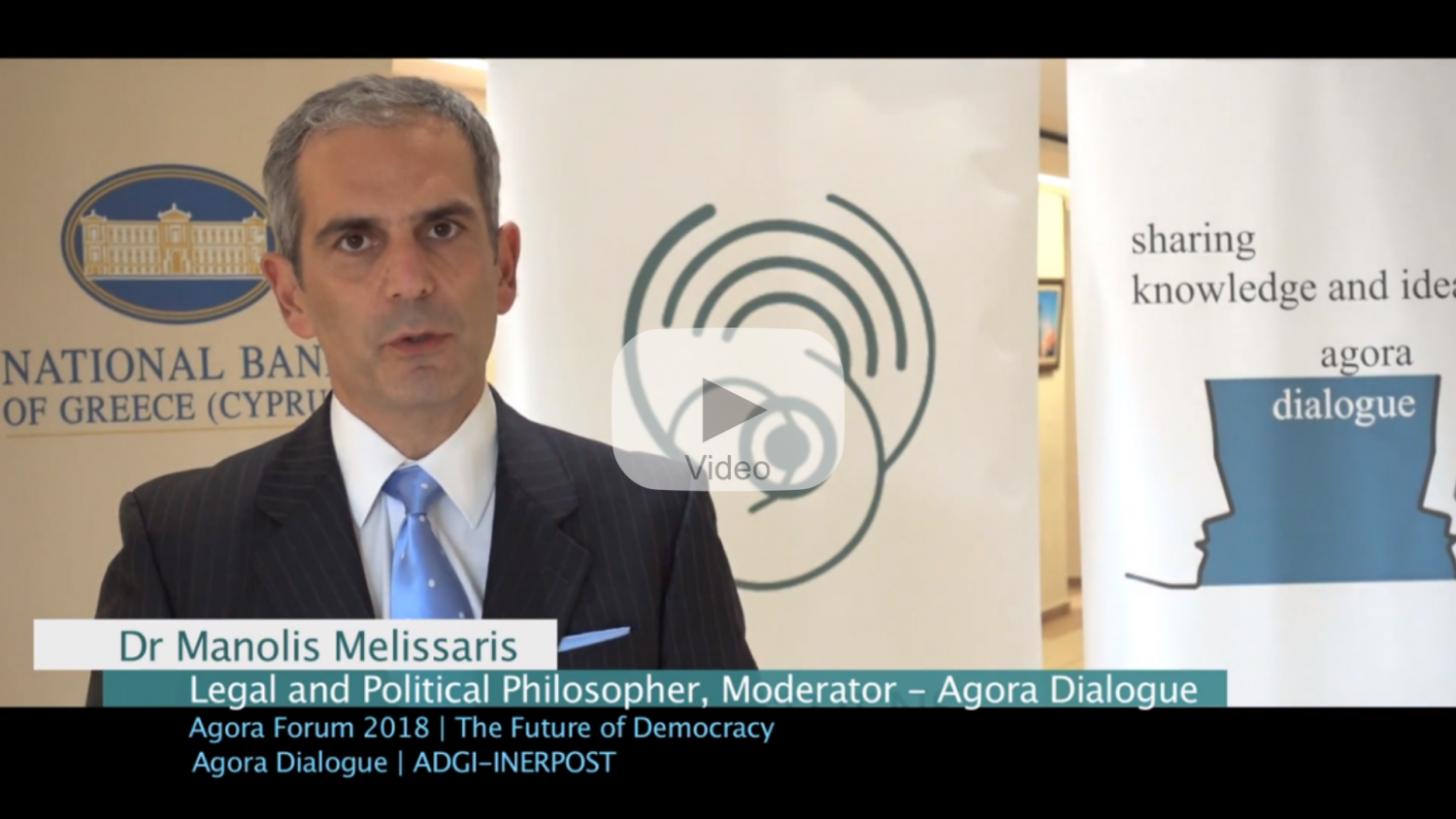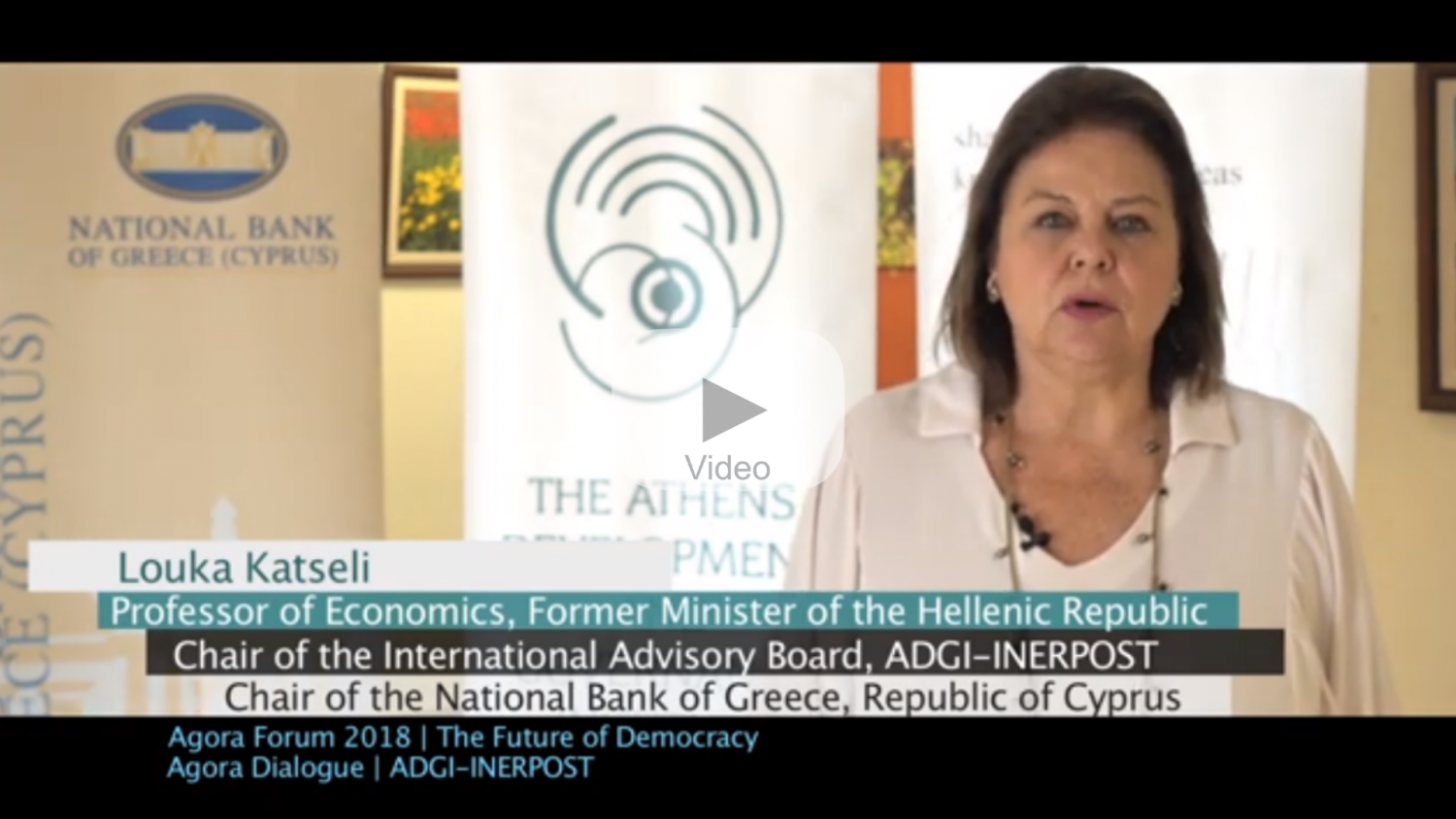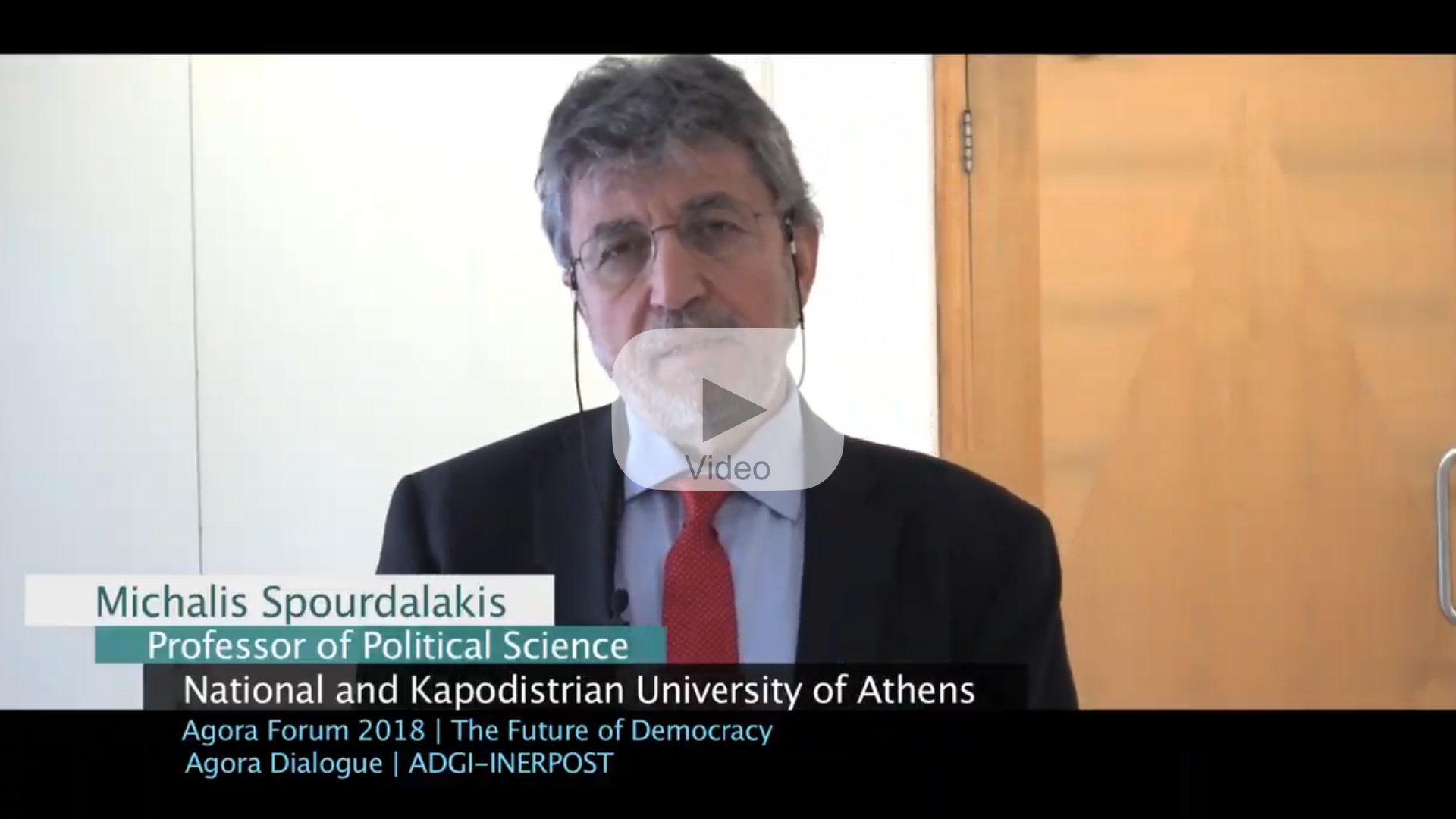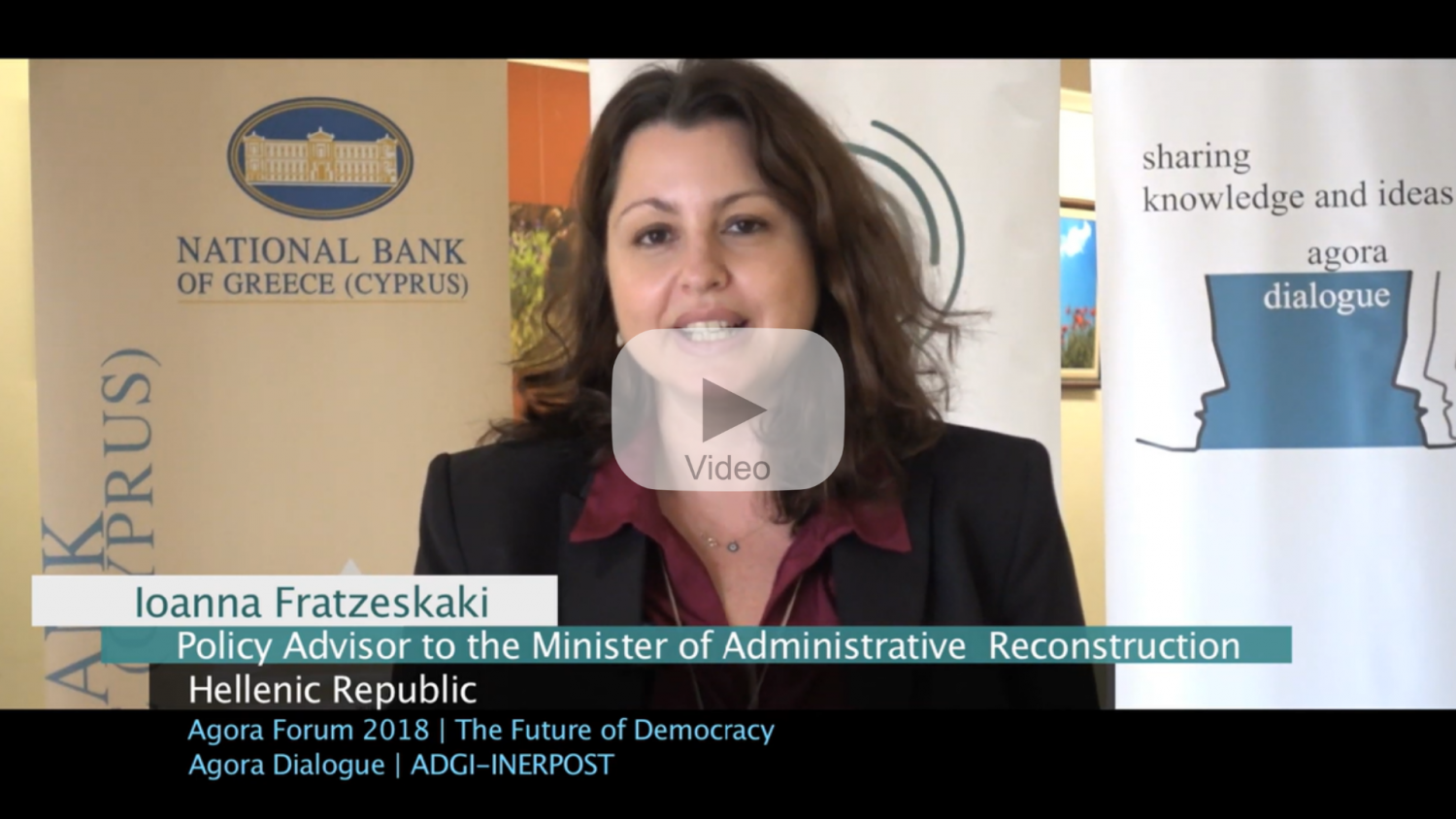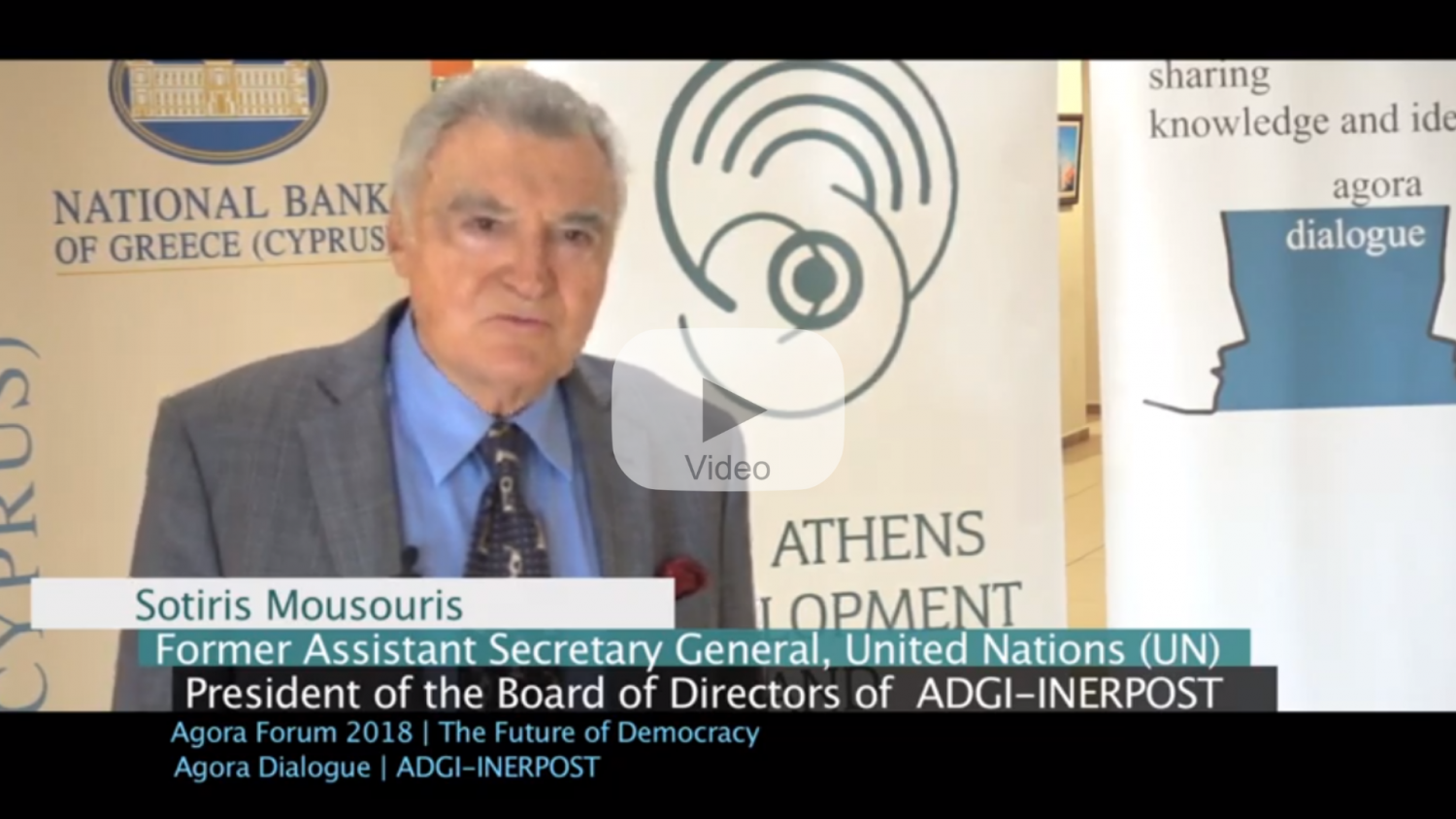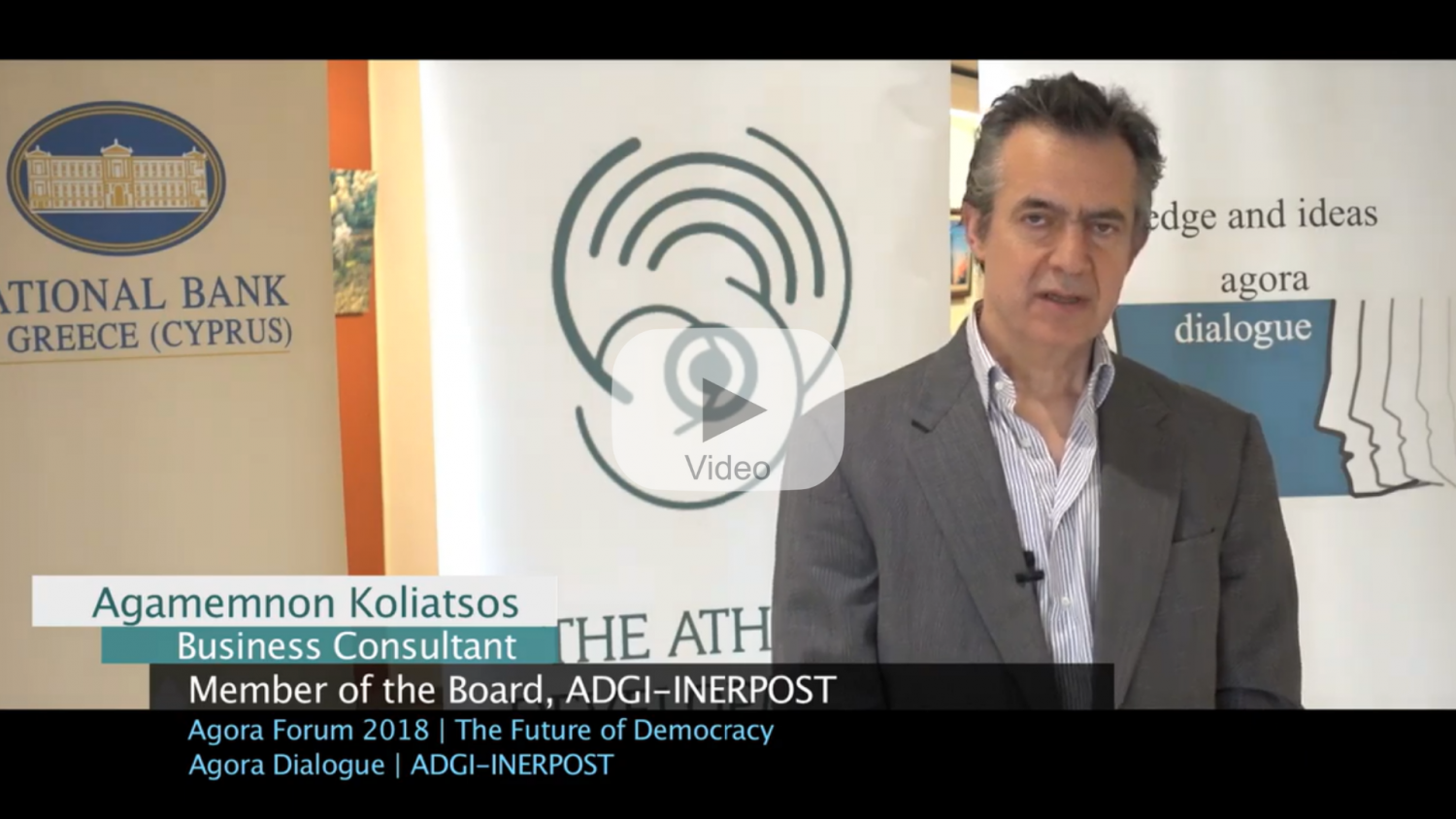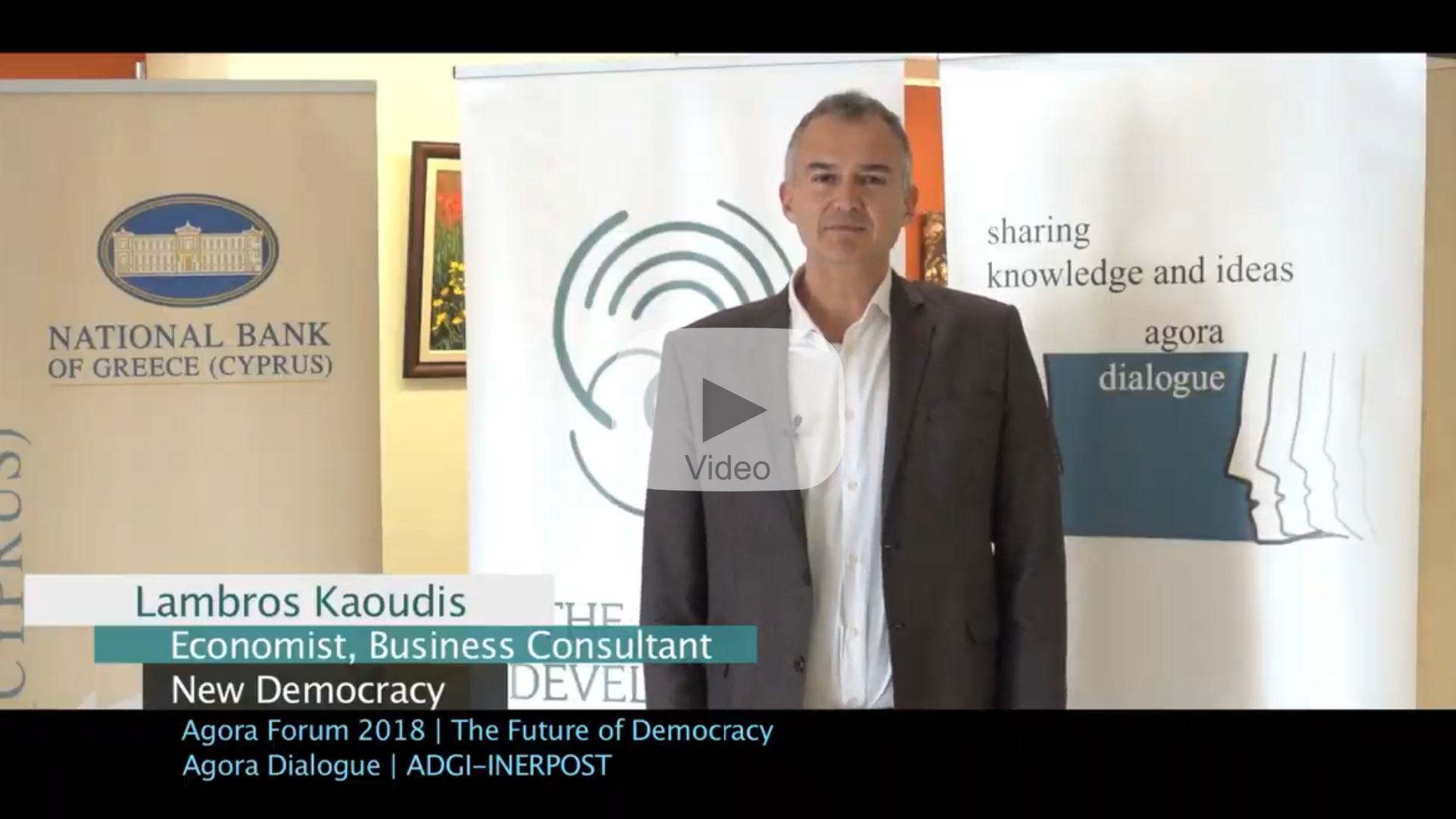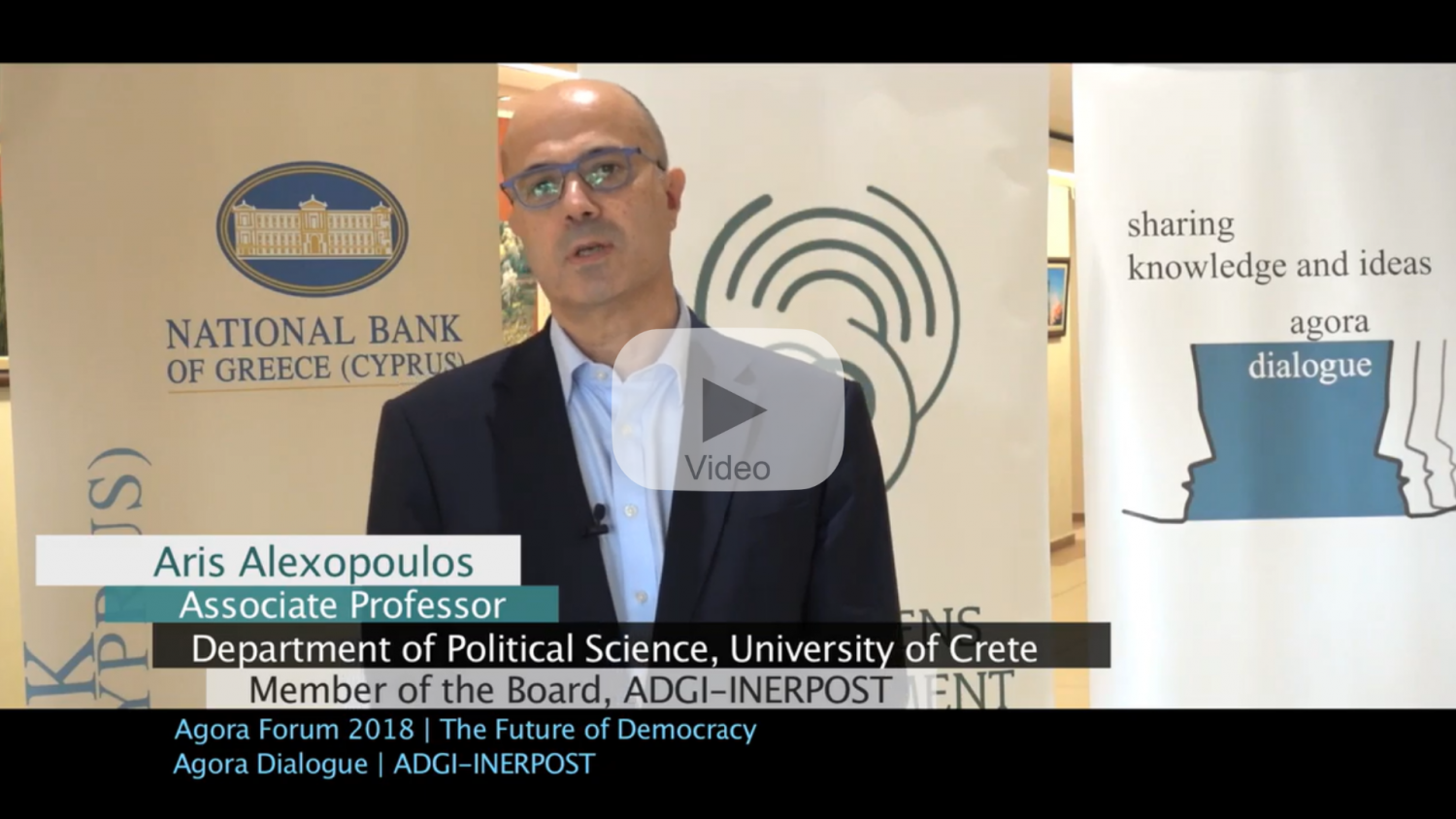Agora Forum 2018 – The Future of Democracy: a summary of day one
Agora Dialogue is guided by the belief that everyone can exercise practical reason and acquire practical wisdom through communication with others.
- Dr. Manolis Melissaris, Legal and Political Philosopher
- Agora Dialogue
It therefore aspires to facilitate free discourse by providing an environment of co-operation.
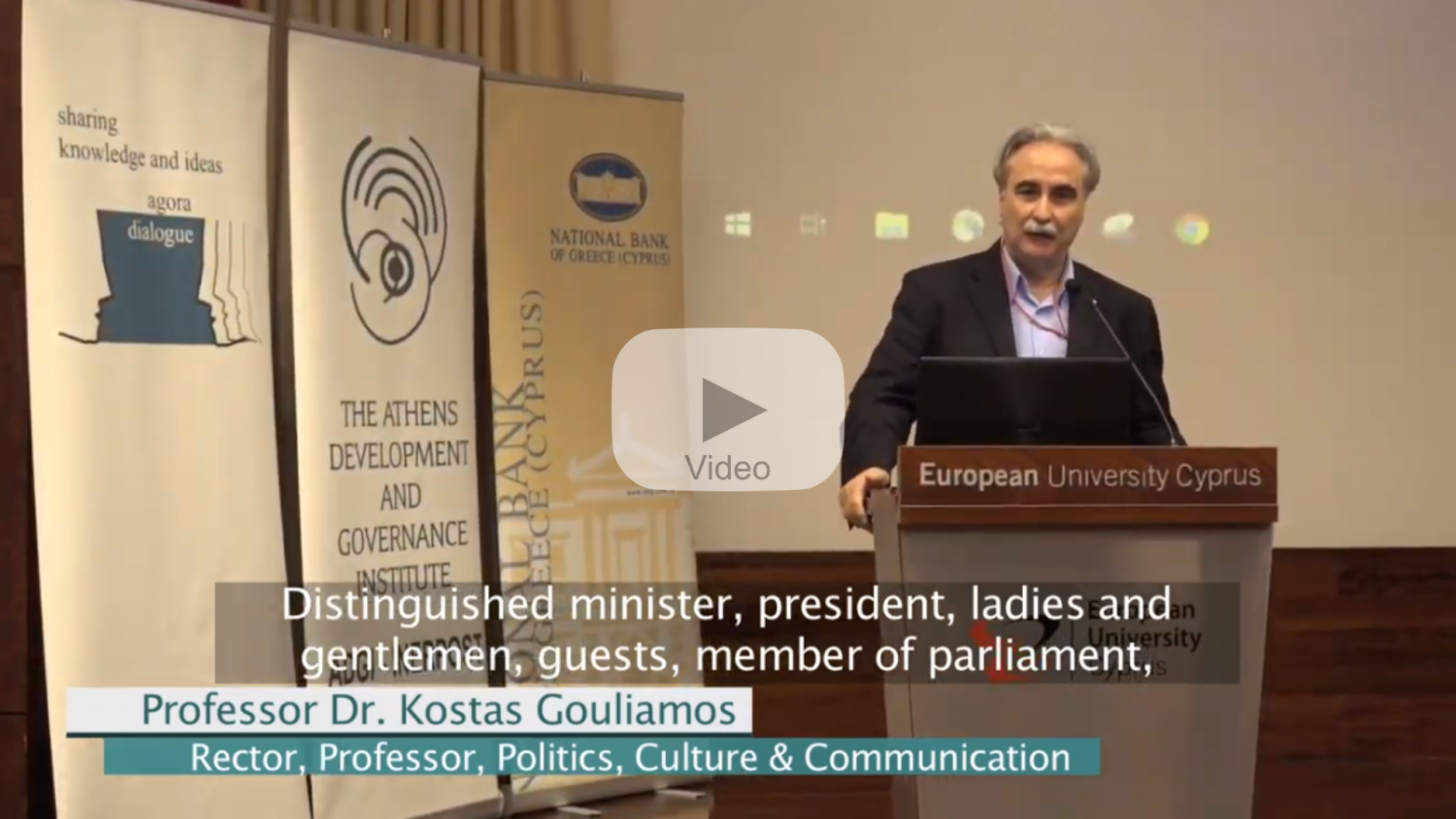 Welcome | Keynote Address | Presentation of the Report of the Independent Commission for Sustainable Equality (ICSE) and of the Outcomes of the Forum
Welcome | Keynote Address | Presentation of the Report of the Independent Commission for Sustainable Equality (ICSE) and of the Outcomes of the Forum
The colloquium brings together people from various backgrounds – academics, businesspeople, policy-makers, artists – who reflect together on the big questions that pertain to the social world.
It cannot be emphasised enough that the colloquium is not an exclusively academic event nor is it an instance of knowledge dissemination, whereby the expert addresses non-experts in a unidirectional manner. All participants bring their expertise and perspective to the table so as to establish a platform of mutual understanding, cross-pollinate views, and strike as wide a consensus as possible.
Discussion is aided by some seminal texts from philosophy and fiction as well as by papers written by participants themselves, which relate back to the overall theme of the colloquium.
The theme of the 2018 colloquium
Over two days we discussed “the future of democracy”. One might ask why we should prolematise the future of democracy. Might we be inviting trouble by doing so? The colloquium participants agreed that we have good reasons to believe that this is not so. First of all, economic and social developments have forced to the surface flaws in the design of democratic institutions, which result in contradictions with the very point of democracy. This poses the risk of democracy being corroded from the inside, on its very own terms. Second, democracy is under external threats by those who consider participatory collective decision-making an obstacle to the pursuit of their goals.
It was, therefore, agreed that is of the first importance to reaffirm our commitment to democracy and to resituate it in the system of values that guide our social and political co-operation.
Focal points
Some themes emerged early on and recurred later in the proceedings to be applied to specific, contemporary contexts.
Participants reflected on what is wrong with injustice, which might take the form of constraints to freedom or inequality. Some tend to think that unfreedom or inequality are permissible to the extent that some benefit for others flows from them. In other words, that the welfare of the many justifies the misery of the few. But it is more frequently the case that we turn a blind eye to injustice. We might convince ourselves that we’re doing nothing wrong, that those at the receiving end of injustice consent to it or are responsible for their predicament. In an interconnected world, our actions often have an impact on people who remain invisible to us, such as those who produce in appalling conditions the goods that we are able to enjoy at low prices. When confronted with injustice of that sort, we find it unpalatable; the image of injustice triggers an instinctive reaction of moral outrage inside us. It is therefore crucial to remind ourselves why this is so and to reiterate some foundational principles that we can all agree upon as rational actors.
To return to the overall theme of the colloquium, how are justice and democracy related? Can you have one without the other? Can a democratic state be unjust and, conversely, can a just state be non-democratic? Or do both justice and democracy flow from the same source, i.e. the idea that we all enjoy the same moral worth and we must be treated in a way that is respectful of that moral worth, so as to be inextricably linked to each other?
An idea that runs through the history of post-Enlightenment political philosophy is that of the social contract, according to which it is possible to reconstruct the terms of the social co-operation in a way that everyone will be compelled to accept and by which everyone will therefore be bound. Is the social contract still relevant or have our societies changed so much since early modernity that we need a new way of thinking about the constitution of our political communities? If we accept that there is such a thing as the social contract, have we reached a point at which we have to rethink its terms? How can we readjust our practices so as to maximise compliance with our fundamental commitment to the freedom and equality of all? The discussion on this nicely prepared the ground for the discussion of the report of the Independent Commission for Sustainable Equality, which Louka Katseli introduced on the second day of the colloquium.
What compromises democracy in our times? An important threat that participants singled out is the manipulation of citizens’ preferences and motivations through disinformation, the so-called fake news. Apart from the short-term consequences of this such as the skewing of election results, it also poses the risk of the corrosion of the public sphere generally. Democratic dialogue is impoverished and so is people’s trust in democratic institutions as well as in each other. A further threat to democracy relates to what in social and political theory is referred to as the decoupling of the social/economic to the political. As democratic institutions are confined within the nation-state they cannot control big economic players, who exercise influence either through transnational institutions or in their margins. We have witnessed the pathologies that this creates all too frequently over the past ten years since the beginning of the financial-turned-fiscal crisis.
Outcomes
The discussion on the first day of the colloquium moved on a higher level of abstraction and served a largely diagnostic but also foundational purpose. The immediate outcome of this foundational part was that it set a substratum, which informed the discussion of topical issues on the second day. Having established a common ground and some common terms of reference, participants were in a position to concentrate on specific problems and on articulating some solutions.
The long-term outcomes will be revealed once all participants take their reflections, which will have been co-operatively molded, back to their places of work and social activity.
It should also be emphasised that Agora Dialogue is establishing itself as an important international forum, which can inform policy making as well as business practice and practices all the way across the social world. And it is of paramount significance that this takes place on this island, at the south easternmost border of the European Union, with its rich and diverse culture and a wide horizon of possibilities.
- The Agora Forum 2018 – The Future of Democracy
- Mariliza Xenogiannakopoulou: The need for change in Europe
- Agora Forum 2018 – «Το μέλλον της Δημοκρατίας»
- Μαριλίζα Ξενογιαννακοπούλου: Ανάγκη για αλλαγές στην Ευρώπη
Acknowledgments
Famagusta Chamber of Commerce and Industries
Human Rights Arts & Film Festival
National Bank of Greece (Cyprus)

